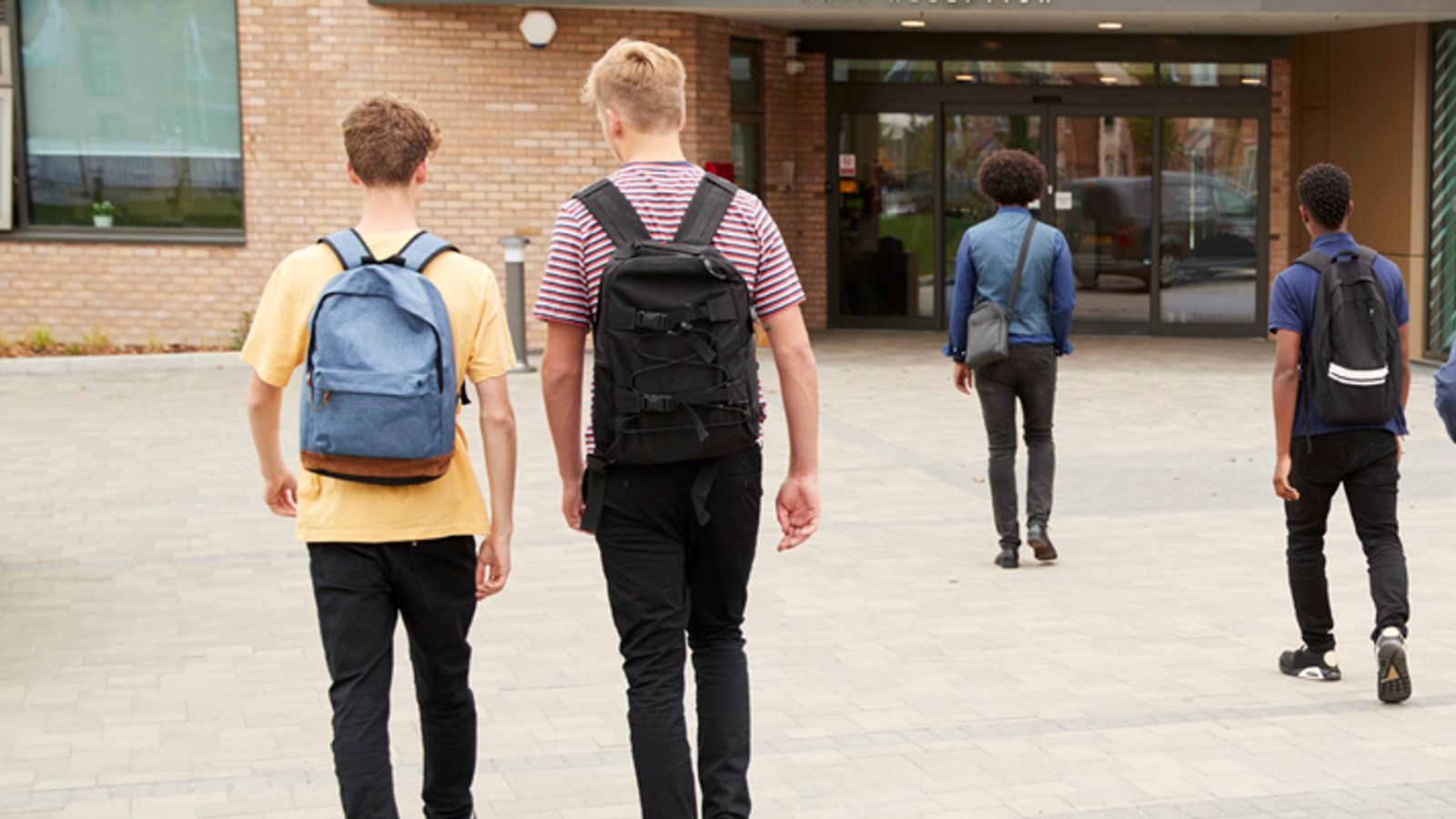The proportion of older children who experience problems with eating has almost doubled in four years, new research has shown.
A survey by NHS Digital found that 13% of 11 to 16-year-olds raised concerns about eating compared with just 7% in 2017.
Meanwhile, the proportion of those aged 17 to 19 with a possible eating problem rose from 45% in 2017 to 58% in 2021.
While the younger age group has seen a smaller increase, experts have described this rise as “particularly concerning”.
Tamsin Ford, Professor of child and adolescent psychiatry at the University of Cambridge, said it was not yet possible to know the reason for the sharp increases.
She also stressed the number of children reporting difficulties with eating was not the same as those diagnosed with eating disorders.
“It’s certainly concerning, I think the exact level in the older teenagers is particularly concerning but perhaps not that surprising when this is not eating disorders, it’s difficulties around eating,” she said.
How do we bring to life a conversation about organ donation?
Father with serious heart condition witnesses birth of first child thanks to transplant
COVID-19: Booster jab invitations to ‘strengthen wall of defence’ will be sent out across England this week
“Of course, worries about your body and body image in teenagers is known as a high-risk period, so I think the absolute level is surprising, but nobody has ever measured this before.
“It’s an increase, it should be concerning and it needs more explanation and more study.
“When we have got a more complete assessment and with all the background data we have on all these children and young people including their social media use…that is something we could explore, but we can only speculate now.”
The findings come following three studies conducted in 2017, 2020 and 2021 involving 2,541 children and young people in England.
The latest study also showed more than half of 11 to 16-year-olds reported to spend more time on social media than they meant to.
Some 17% admitted the amount of interactions, such as likes, comments and shares their posts receive, impacted their mood.
Other issues highlighted were problems with sleep, with over half (57%) of those aged 17 to 23 reporting to be affected by problems with sleep on three or more nights of the previous seven.
More than a quarter (29%) of six to 10-year-olds also said they had problems with sleep, as did over a third (38%) of 11 to 16-year-olds.
One in six children in England now has a probable mental health disorder, though this figure had not changed significantly since the start of the pandemic in 2020, the study showed.
However, Prof Ford said she was “very wary” of dismissing the stable levels of probable mental health disorders as a “bit of a blip”.
“We have done a bit of analysis around what’s happening to sub groups but I think we need to be concerned – the signs are that children’s mental health was deteriorating from this series of surveys over 20 years, before the pandemic hit,” she said.
“We have now got evidence at a population level that it wasn’t a blip…some of the (online) surveys do suggest that, certainly in adults, mental health had a bit of a wobble in the first lockdown and then pretty much returned to normal.
“But, of course, the people that fill those in tend to be highly-educated people with access to online materials, and those living in deprivation and ethnic minority groups are under-represented.
“These are not transient issues…I think we should be very wary of dismissing this as a bit of a blip.”
Responding to the study, Barnardo’s interim co-chief executive, Lynn Perry said: “This new data confirms that a worrying proportion of children are struggling with mental health, and this problem is not going away.
“Today’s findings show that children who already struggled with their mental health before COVID have faced particular challenges in recent months, and those in poverty and lacking strong family support are also more at risk.
“For all these reasons we are calling on the Government to ensure that mental health support teams are rolled out across all schools in England as a matter of urgency.”






















